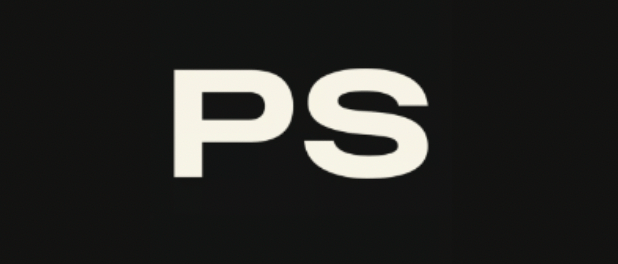- Profit Snack
- Posts
- 🦈 How To Make A Deal With A Shark
🦈 How To Make A Deal With A Shark

🦈 How To Make A Deal With A Shark
Shark Tank - The reality TV show for entrepreneurs.

I’ll admit, I’m a die-hard fan myself. I’ve just finished watching season 15 when I began to wonder…
Is there a pattern in why some get no deals, while others have Sharks fighting to give them thousands?
Obviously, the product they sell is a big factor.
But after some thought, I realized that it doesn’t matter how great a product is or how many sales they have….
A Shark ultimately decides if they will invest because of one thing…The pitch.
So if you want to get better at writing copy, have more investors, or plan to be on season 16 of Shark Tank…
This one’s for you.
🪝 The Bait ‘N Hook
💰 Facts Tell, But Stories Sell
🩸What Not To Do In A Shark Tank
Read Time: 5 min 11 sec

🪝 The Bait ‘N Hook
After watching countless seasons of Shark Tank and researching different pitches for 4+ hours this weekend…
I’ve broken down the most successful pitches into 3 parts.
(Sucess meaning at least 2 Sharks went for a deal)
Part #1 - The bait and hook
Sharks spend all day listening to entrepreneurs beg them for money.
So I found that the most successful pitches all do one thing very well…
Their first few sentences are bold enough to catch the Sharks off guard and prove they are worth paying attention to.
Sabri Suby (Australian Shark) gives this formula for opening lines:
A Hook = A Big And Specific Claim + Social Proof
In Season 15, Contor Cube made a deal with 4 Sharks and walked away with $375K in funding for 30% equity.
This was their opening line:

Your copy needs to grab buyers by the eyeballs and make them think your product is the most important thing in the room.

Have a business or something you want to promote in front of 65,000+ readers?

Click the button below to apply now!

💰 Facts Tell, But Stories Sell
“If you cannot tell the story and put your prospective customer into the narrative of our financial products you will fail… Oh and you better be able to get your story out in less than 90 seconds or you can pack your bags.” - Kevin O'Leary (Shark)
Part #2 - Your Story
58% of entrepreneurs who received at least one yes deal gave a story about how their brand started and how they landed on Shark Tank.
The best stories do two things:
Show a market gap that their business fills. This is some variation of “I struggled with X so I created Y.
Emotionally appeal to at least one of the Sharks
In season 6 the founder of Kronos Golf told his story about leaving his fiance in Japan to pursue his dream.
He said that he quit his ‘safe’ consulting job to pursue his dream, and now worked relentlessly to make his business work so that he could afford to bring her to America.
Robert Herjavec (Shark) said that he would not normally invest in this type of business AND that he would not see an immediate return.
But he invested anyway because he saw the founder’s drive for success based on his story.
Facts tell, but stories sell.
When writing copy, you must tell a story that puts your buyer in your shoes.
Speak to them in a way that shows you understand their story, and give them a reason to align their goals with yours.
Part #3 - The Demonstration
This is the part of the pitch where the Sharks get to try out the product.
(AKA my favorite part)
I’d say the best demonstration happened during season 3 with Kisstixx where 2 Sharks kissed to test the product.
Kistixx hit all 3 goals of a demonstration:
Engaging
Memorable
Hit multiple pain points
By the end, Kisstixx made a deal with Mark Cuban for $200,000, and 40% equity.
The lesson is simple - Don’t tell readers what you can do for them. Sell them on the end result.
The Secret To Building A Brand - Our 4 min article on the one secret to building a brand using your story…

🩸What Not To Do In A Shark Tank
Just like there is a clear formula on what to do to get a yes, there are also a few clear nos.
Here are 3 faults most no-deals made that also apply to copy:
#1 - Use phantom numbers
Over 70% of deals that relied on ‘projected’ or ‘estimated’ numbers without proof of sales were no deals.
Some entrepreneurs went to Shark Tank with only an idea and a million-dollar ask. Almost all of which were turned down.
Don’t rely on what you think will happen. Sell based on what you can prove and have already done.
PS - When you do have numbers, don’t lose your authority with simple mistakes. 64% of no deals had a math problem like miscalculations, overvaluations, etc.
#2 - Insult the buyer
Just like it never works out for an entrepreneur to insult a Shark… you should never insult your buyer.
Like this guy in season 3 when he called a Shark worthless for pulling out

You are their friend. You know what it’s like to be them. You understand that they’re struggling because you have too.
You can’t guilt people into buying. But you can inspire them to.
#3 - Talk too much
Whenever I finish writing, I always reread it while telling myself “How would I say this if I got $500 for every word removed?”
Every time I find a way to say something in fewer words. Sometimes I remove a whole paragraph.
Write your copy, cut the fluff, and give your offer.

What'd you think of today's edition? |



Reply